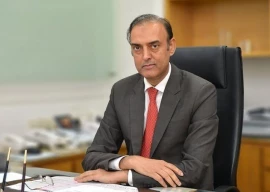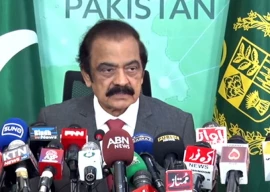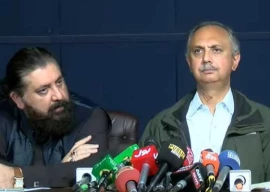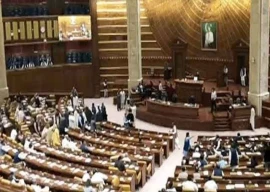
In order to overcome religious and sectarian violence, and social injustice and inequality, dialogues and discussions should be made an integral part of the learning process of students from both seminaries and mainstream universities.
This was the crux of a dialogue between youths from madrassas and formal education institutes organised here on Wednesday.
Participants of the “peace dialogue” organised by the Pakistan Institute of Peace Studies and Khudi agreed that the interactions would provide a platform to the younger generation to find common solutions for the problems that are leading the Pakistani society towards a disaster.

Policy expert and writer Raza Rumi termed the downward trend of intellectual discussions and dialogue in Pakistan unfortunate and said young Pakistanis are surrounded by confusions, most of which are a product of false narratives created by political and religious leaders for their own vested interests.
“Conflict is eating up Pakistani society like termites,” he said. “We need to find solutions to conflict and other issues because it is a problem of the survival of Pakistan.”
He said Islam advocates equality and has stood up for the rights of the underprivileged in the absence of research, knowledge and the spirit of inquiry, the Pakistanis society has become stagnated.
“Disagreements with each other should not undercut the process of thoughts and discussions,” Rumi added.
Earlier, students from various seminaries and Quaid-e-Azam University emphasised the need for discussions between otherwise isolated social groups despite of most of their ideas being rhetorical.

QAU student Ziaur Rehman said improper policymaking had deprived citizens of their basic freedoms. He also talked about the lack of youth advocacy programme for students, particularly those from madrassas.
“Absence of electoral reforms has led to bad governance and the youth should not only actively participate in electoral process but also try to restructure it,” he added.
Pakistan’s divergence from the ideology that led to its creation has led to the current militancy and problems pertaining to its educational system according to Rafaqat Jalali, a student at the Jamia Ghausia Rizvia.
Meanwhile, Azeem Akhtar, a student from a seminary in Faisalabad, said Pakistan was hurt most by people who force their version of religion on others and because of whom the society has developed a collective lack of tolerance.
Participants were also of the opinion that such platforms should be used to fill the void that has emerged between madrassa and university students.
Published in The Express Tribune, November 7th, 2013.
COMMENTS (1)
Comments are moderated and generally will be posted if they are on-topic and not abusive.
For more information, please see our Comments FAQ






1730379446-0/WhatsApp-Image-2024-10-31-at-17-56-13-(1)1730379446-0-270x192.webp)










Excellent initiative by all. More such open discussions need to take place across Pakistan to promote at the least 'listening' to each others concerns